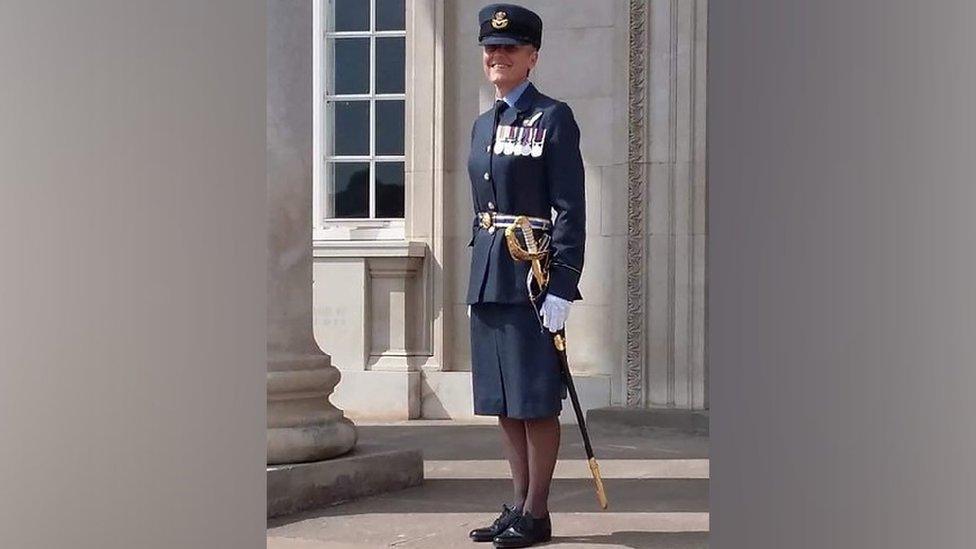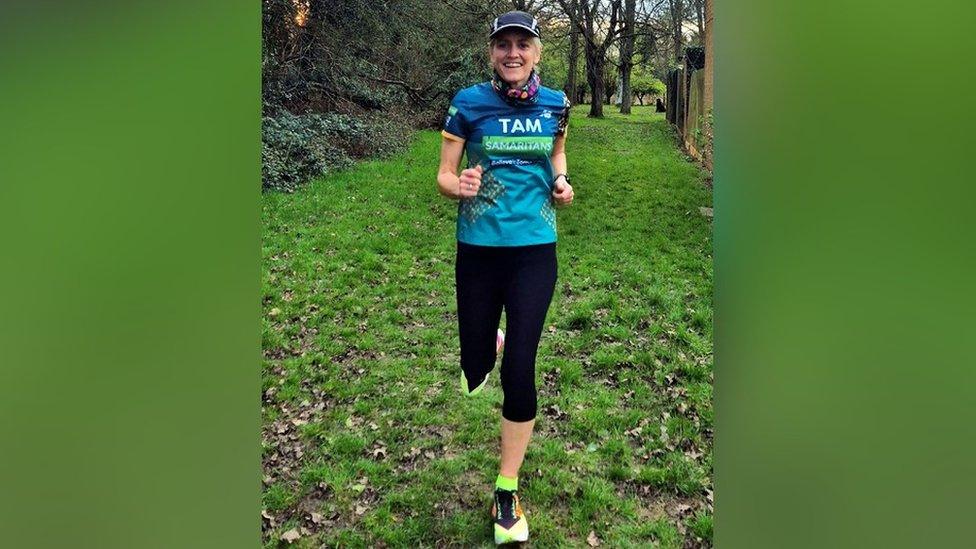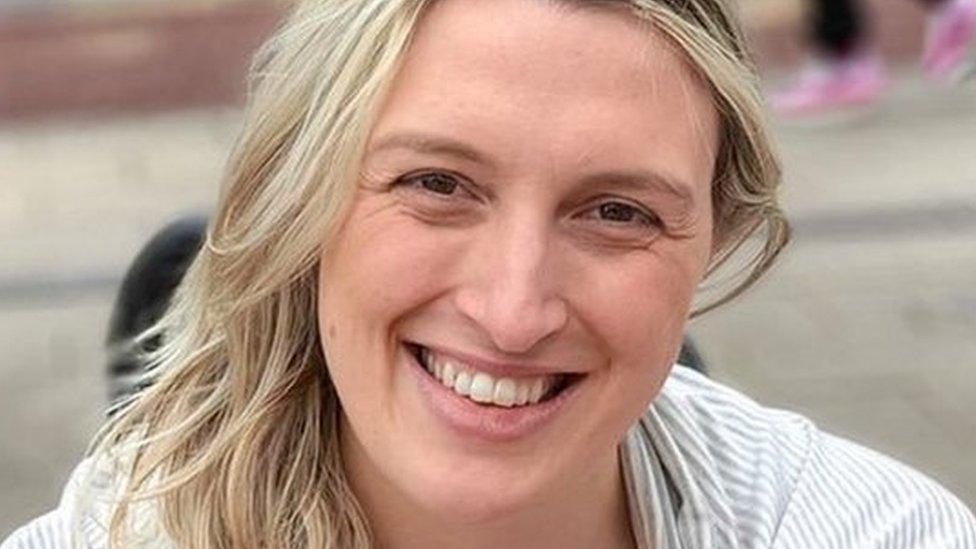London Marathon: RAF High Wycombe officer to run for Samaritans
- Published

Sqn Ldr Tamsin Wakeham has experienced suicidal thoughts but said "life is worth living"
A gay RAF officer who has experienced suicidal thoughts in the past says "life is worth living" as she prepares to run the London Marathon.
Sqn Ldr Tamsin Wakeham, who is based at RAF High Wycombe, Buckinghamshire, will take on the endurance challenge to raise money for Samaritans.
The annual 26.2 mile (42km) event takes place on 20 April.
Ms Wakeham said: "I'm in a good place physically and mentally so it seems a good time to give back."
She first joined the military in 1989 when there was a ban on lesbian, gay and bisexual people serving in the armed forces. The ban was not repealed until 12 January 2000.
Although she was unsure about her sexuality when she signed up, Ms Wakeham later started a relationship with a woman which she was forced to keep secret to avoid losing her job.
"That has an effect that you can't trust any friends," she said.
"Then the rumour mill starts. I remember walking into the mess and the place would go quiet. I'm 19 at the time. If I sat at a table, people would get up."
She was banned from seeing her girlfriend and her mental health deteriorated.
"I was being told all gays are weird," she said. "I'm being told it's wrong and I nearly lost my job. I just kept saying, 'No, I'm not'.
"I didn't want to talk to people. I wouldn't ask people about themselves as I didn't want them to ask me about myself."
Ms Wakeham decided to leave her job in 1994 and moved to the United States, where she worked in surveillance at a casino.
She rejoined the military in 2000 after the ban was lifted.
A government spokesperson said: "We deeply regret the treatment of LGBT serving personnel between 1967 and 2000, which was wholly unacceptable and does not reflect today's armed forces, and thank those that have come forward to share their stories."

Ms Wakeham said Samaritans needed funding to support more people experiencing mental health crises
Ms Wakeham, who will be running the London Marathon for the first time, began volunteering for Samaritans - which provides round-the-clock support for people who are having a difficult time - two years ago.
She said funding was needed to ensure a trained listening volunteer was available for everyone who asks for help.
"They are people in crisis. You can see how many calls are waiting," she said.
"They are not all thinking of ending their life. Samaritans isn't just about that.
"There are lots of people phoning who are just so unhappy.
"You can talk to a stranger and turn your life around."

Find BBC News: East of England on Facebook, external, Instagram, external and X, external. If you have a story suggestion email eastofenglandnews@bbc.co.uk, external
Related topics
- Published24 April 2023
